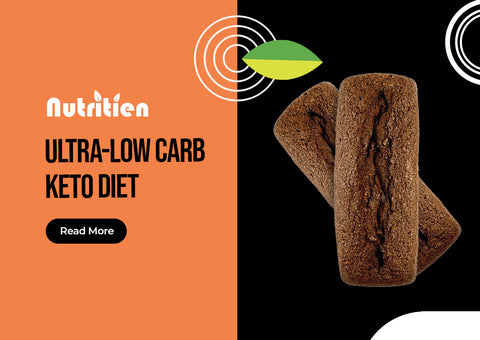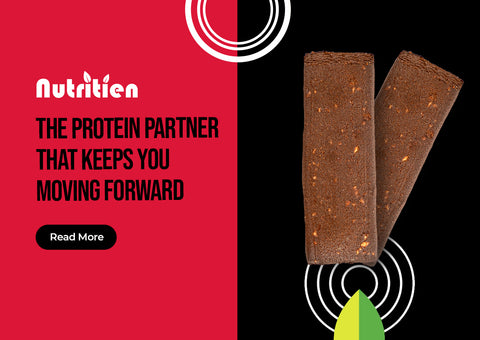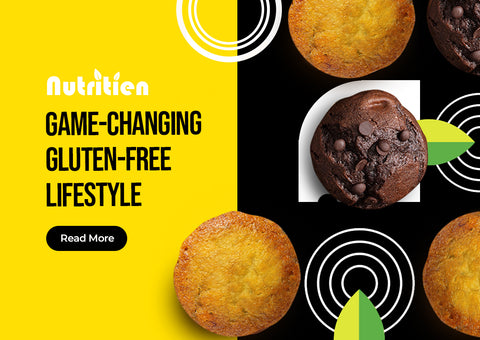In recent months, the phrase keto has been more ubiquitous than ever, dominating grocery shops and the media. While the keto craze, also known as the ketogenic diet, has gained popularity recently, its roots can be traced back to the 19th century, when it was routinely used to treat diabetes and even epilepsy in children. Many doctors of the time believed that the diet had certain benefits, and the prominent physician Horace Fletcher even praised it in his 1891 book Diet and Health.
With the launch of the Atkins diet in the mid-1970s, the keto lifestyle returned to the forefront of public consciousness. The Atkins diet is the first mass-marketed version of the modern keto diet. With so many variants and diet regimens available, boarding the keto train is, at best, a difficult task. Today, we'll help you understand the basics of a lifestyle that, at first glance, seems complicated but has many long-term health benefits that can help you reach your short-term and long-term goals. Keto diets are so popular because they produce results. However, there's a lot of misinformation and misconceptions out there.
Keto is an abbreviation for ketogenic, which refers to any diet that emphasizes consuming fats and proteins while minimizing carbohydrates and sweets. Consuming low-carbohydrate diets induces a metabolic condition known as nutritional ketosis, in which the body burns fat as its primary source of fuel rather than carbs. While the specifics of a ketogenic diet will vary from person to person, it generally contains high-quality proteins such as lean cuts of beef and pork and fish, eggs, cheese, and green vegetables. Following the ketogenic diet often entails consuming fewer than 50 grams of carbohydrates daily. For example, a medium banana has around 28 grams of carbohydrates.
The ketogenic state, also known as ketosis, should not be confused with ketoacidosis, a potentially life-threatening diabetic disease in which the body creates excessive amounts of blood acids. Instead, ketosis is a metabolic state that permits the body to burn excess fat when glycogen is depleted. Glycogen is a chemical formed from most high-carb foods we consume daily. This deprivation of glucose is also known to alleviate the symptoms of type 2 diabetes, allowing many individuals with the disease to maintain normal blood sugar levels.
What Do You Eat on Keto?
Anyone who has ever-attempted carbohydrate restriction understands how difficult it can be. Because they are not just found in obvious foods such as pasta, bread, and pizza. Unexpected sources of carbohydrates include fruit, starchy vegetables, beans, and even dairy products. Many individuals find the ketogenic diet challenging to navigate and maintain over time. On the ketogenic diet, staple foods include high-fat and high-protein foods such as meat, eggs, cheese, eggs, fish, nuts, butter, seeds, and oil, as well as low-carb, high-fibre vegetables.
Due to the prevalence of this diet, numerous manufacturers have developed keto-compliant ready-to-eat meals and snacks. Nutritien features a whole line of keto-friendly, plant-based protein bars with creamy nut butter bases, cocoa butter, and medium chain triglycerides (MCTs) that adhere to the macronutrient requirements of a ketogenic diet. They are tasty and free of added sweets and artificial flavours. Moreover, Nutritien's ketogenic bars can be bought as a stand-alone food option, or they can serve as a handy snack at lunchtime that you can grab during your commute.
Health and Keto
Scientists and medical professionals are currently investigating the effects of the keto diet on a variety of health conditions and diseases, including cancer, polycystic ovary syndrome (PCOS), multiple sclerosis, sleep disorders, autism, Parkinson's, and Alzheimer's, but the results are inconclusive at this time.
There is some evidence that the ketogenic diet can assist persons with type 2 diabetes in better controlling their blood sugar, at least in the short term. Additionally, some preliminary research suggests that keto may have a favourable effect on cholesterol levels. However, the absence of long-term studies on blood sugar and cholesterol hinders many specialists from forming definitive conclusions regarding the relationship. Furthermore, the carb-heavy keto diet is highly controversial, with some studies suggesting it can increase heart disease risk.
Keto and Weight Maintenance
As low-carb diets such as Atkins, Paleo, and South Beach have gained popularity recently, keto has surfaced as a prospective weight loss answer.
Therefore, what does the evidence indicate about the efficacy of the keto diet for weight loss? Following a keto diet may result in faster weight loss but not necessarily more weight loss than traditional diets. Studies indicate that a ketogenic or deficient carbohydrate diet may lead to more rapid weight loss than low-fat diets and the Mediterranean diet. However, research suggests that this differential in weight reduction appears to diminish over time. A ketogenic or deficient carbohydrate diet may lead to faster weight loss than a traditional diet, but the difference seems to reduce over time.
Pros and Drawbacks
When practiced carefully, the advantages of a ketogenic lifestyle are numerous. In addition to aiding in weight loss, a low-carb diet is associated with benefits in acne, heart health, high cholesterol, cognitive function, PCOS, and a decreased risk of cancer and epileptic seizures. When practiced carefully, the advantages of a ketogenic lifestyle are numerous.
Long-term maintenance of the ketogenic diet can increase the risk for consequences such as kidney stones, excess protein in the bloodstream, a buildup of fat in the liver, and vitamin and mineral shortages. Common symptoms of "keto flu" include nausea, vomiting, headaches, and exhaustion.
Conclusion:
In recent years, the ketogenic lifestyle has gained renewed popularity, which has reached new heights in the aftermath of the COVID pandemic. However, its origins and the research that led to it took decades to develop. Therefore, before beginning a new diet, it is advisable to see a trusted physician to check that it is appropriate for you.




